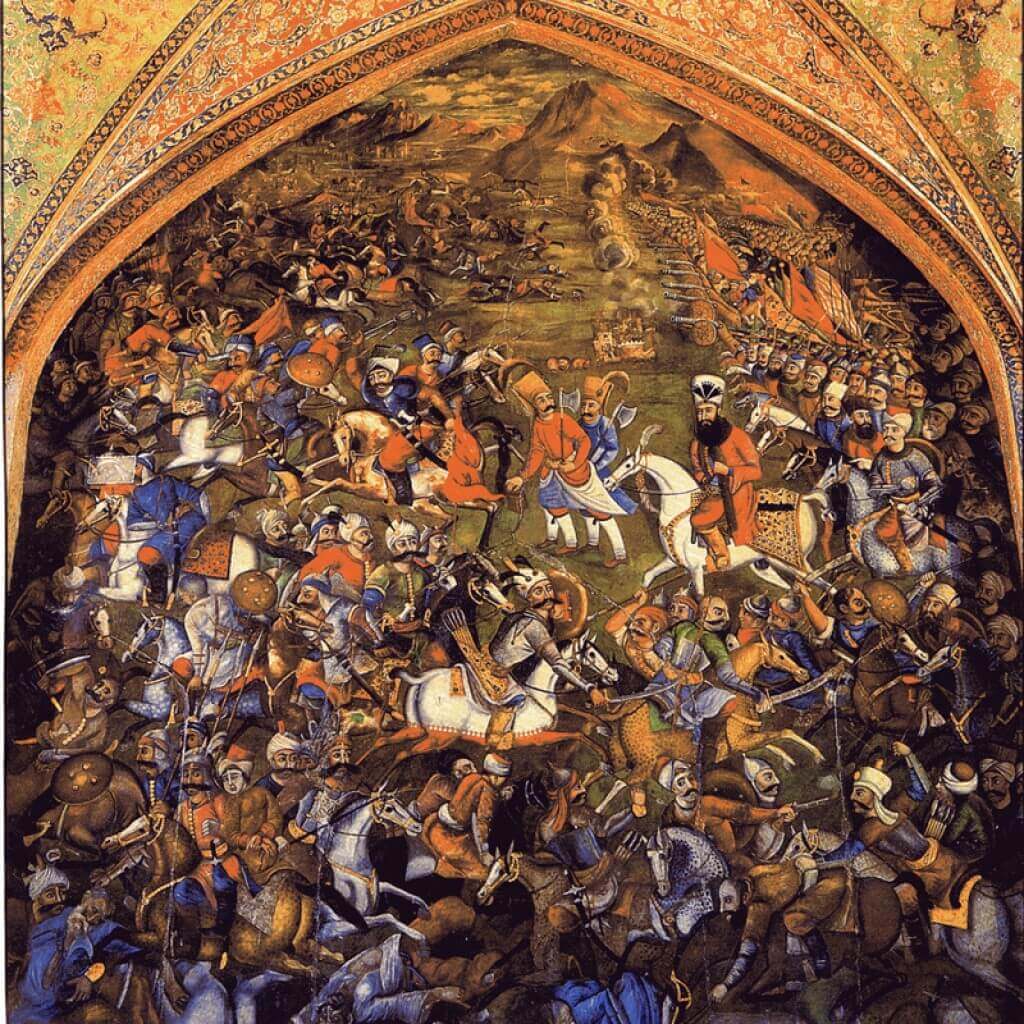A major collaborative programme with the British School in Ankara looking both at Iran’s relations with the Ottoman Empire to the West and the Mughal Empire to the east. Mirroring the Sasanian project led by Professor Eberhard Sauer, this project will likewise discuss political, religious and cultural relations and invite projects that look at Greater Khorasan (Central Asia) and Safavid relations with its frontier territories in what is now modern Afghanistan. One of the major themes which we would seek to address is the Afghan dimension and the cultural and political relationship between the Iranian and Afghan worlds, the contemporary relevance of which cannot be under-estimated.
The notion of kingship and its legitimacy has permeated Iranian history, culture, literature and art for millennia, in both pre-Islamic and Islamic times. It can be traced in numerous media, from architecture and town planning to coins, from rock reliefs to book painting. It is the principal theme of the Persian national epic, the Book of Kings (Shahnama), completed by Firdausi c. A.D.1010, an epic poem of some 60,000 couplets that records the history and pre-history of Iran and its heroes and their exploits. The various manifestations of kingship can be traced in many chronicles, in visual symbols, in official documents and in inscriptions. It generated a popular literary genre, the Mirror for Princes. The deeds of kings dominate many works of Persian literature, such as the Gulistan of Sa’adi and the Khamsa of Nizami.

One important aspect of the centrality of kingship in Persian culture has been the royal patronage of illustrated manuscripts of these and other major works of Persian literature, on the one hand, and the non-literary uses of these texts on the other. This research theme thus invites the investigation of the image of the ruler in Persian literature and political thought, and, conversely, the royal patronage of art and material culture that sustained the projection of this image.
Charles Melville read Arabic & Persian at Cambridge (1972), took an MA in Islamic History at SOAS, London (1973), and completed a PhD on “The historical seismicity of Iran from the 7th to the 17th centuries” (Cambridge 1978). From 1974 to 1984, he worked on a number of projects researching earthquake hazard both in the Middle East and in Britain, based first at Imperial College in London and then for the Central Electricity Generating Board (CEGB > National Power). He returned to Cambridge in 1984 as University Lecturer in Middle Eastern & Islamic Studies and Fellow of Pembroke College. He was made Reader in 2001 and Professor of Persian History in 2008.
He has been a long-serving member of the Governing Council of the British Institute of Persian Studies and previously Chairman of the Research Committee, and has also served on the Board of the Societas Iranologica Europaea (1995-2003). Since 1999, he has been Director of the Shahnama Project, and since 2006 he has been President of The Islamic Manuscript Association (TIMA), both based in Cambridge. In 2010 he was behind an exhibition of Persian manuscripts and paintings of the Shahnama at the Fitzwilliam Museum in Cambridge. He has travelled and lectured widely in Central Asia and Iran (both before and after the Islamic Revolution).
Professor Melville’s main research interests are in the history and culture of Iran in the Mongol to Safavid periods, and the illustration of Persian manuscripts. Recent publications include edited volumes of Safavid Persia (1996), Shahnama Studies (2006), and ‘Millennium of the Shahnama of Firdausi’ (Iranian Studies, 2010, with Firuza Abdullaeva); ‘The Persian Book of Kings: Ibrahim Sultan’s Shahnama’ (2008, also with Firuza Abdullaeva) and ‘Epic of the Kings: The Art of Ferdowsi’s Shahnameh’ (2010, with Barbara Brend). Edited volumes on ‘Persian Historiography’ and ‘Kingship from Antiquity to the Medieval World’ are currently in press.
For more information on this project, please contact Professor Melville.